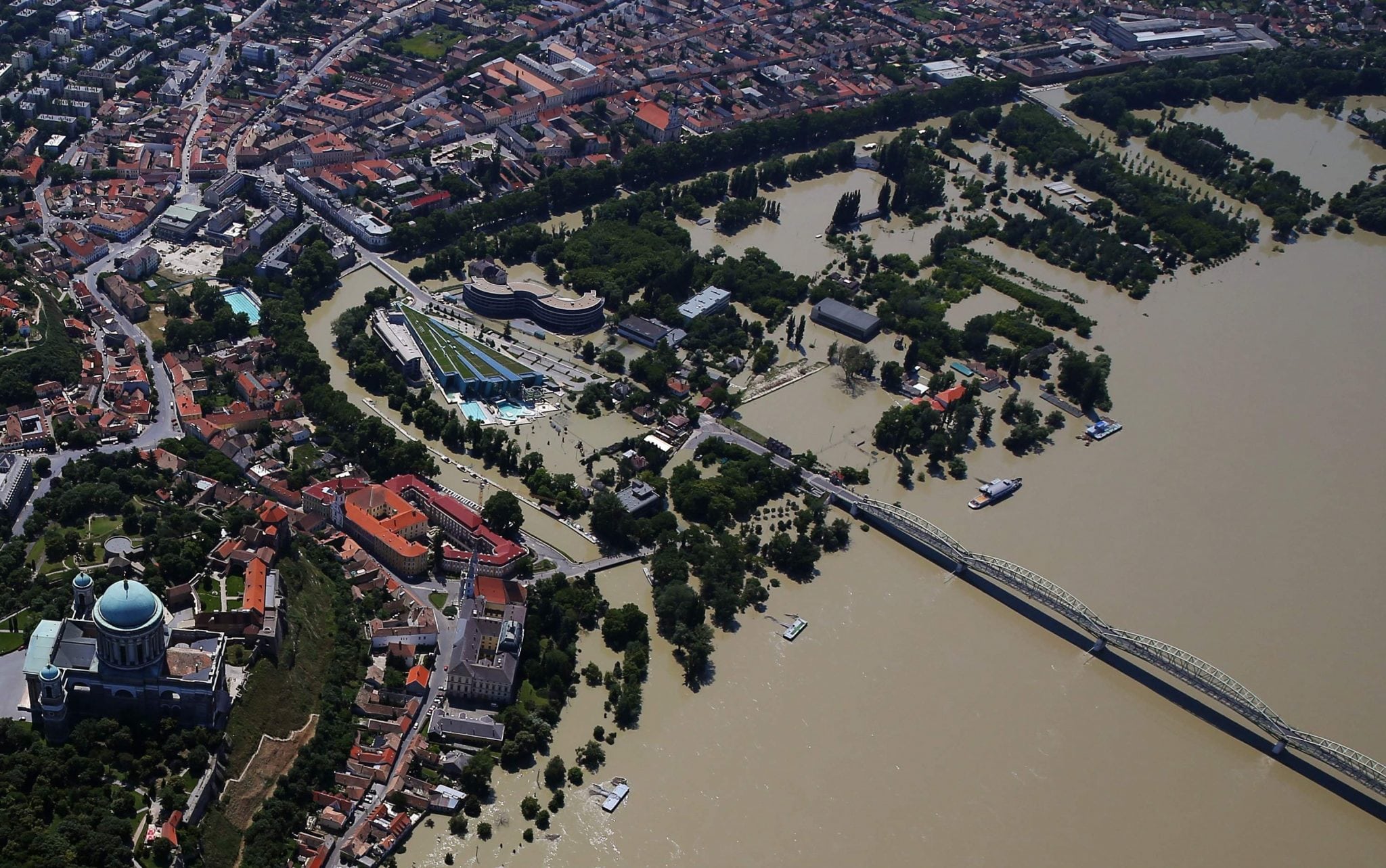Budapest battles back the Danube while German dikes burst

Hungary’s government said it was containing the flooding Danube in Budapest, while the economic toll grew in Germany, where thousands of people have been evacuated along the overflowing Elbe River.
Hungarian authorities are “in control” of the Danube with 20,000 people including more than 7,000 soldiers working to erect barriers, Prime Minister Viktor Orban said today on the banks of the river in the Hungarian capital. Europe’s second- longest waterway reached a record level yesterday and is now receding in the capital.
“We aren’t surrendering a single dike, we’re defending everywhere,” Orban said in remarks broadcast by state-run M1 television. Parliament will today vote on Orban’s request to extend a state of emergency.
The floods, triggered by heavy rainfall, are the worst in central Europe since 2002. Overflowing rivers killed ten people in the Czech Republic and at least six have died in Germany, while tens of thousands of people had to evacuate to escape the water that inundated cities and towns, shut down factories and disrupted rail, road and river traffic.
In Germany, more than 1,000 people were asked to leave their homes today after a levee broke on the banks of the Elbe near Stendal, 130 kilometers (80 miles) west of Berlin. In the state of Saxony-Anhalt, where Stendal is located, the number of evacuees is 44,000 and rising, Anke Reppin, spokeswoman of the state’s crisis center, said by phone today.
Merkel visit
Chancellor Angela Merkel is due to make her third visit to Germany’s flood-affected regions in a week today when she travels to the town of Wittenberge in Brandenburg, where the Elbe forms the boundary with Saxony-Anhalt.
Deutsche Bahn canceled or delayed train services from Frankfurt to Berlin and from Hanover to Berlin after authorities closed a bridge over the Elbe near Stendal, the company said in a statement today.
The Elbe is blocked to shipping traffic from Doemitz, around 120 kilometers southwest of Hamburg, to Dresden in the east of the country, according to data on the website of the German Water and Shipping Office WSV. The Rhine and Main rivers are open for shipping traffic while the Danube is still closed at Hofkirchen, close to the border with Austria and the Czech Republic, WSV said.
Suzuki Motor Corp. halted production at its factory in Esztergom, northern Hungary after the closure of a bridge spanning the Danube. Many of Suzuki’s 3,000 workers in Hungary live in Slovakia and commute across the bridge, company spokeswoman Viktoria Ruska said by phone today.
Budapest traffic
In Budapest, where the waves of the Danube lapped the base of the neo-gothic Parliament building and embankments have been submerged for days, authorities closed off several roads and a subway station and asked commuters to leave their cars at home to reduce congestion.
So far, 1,315 people had to be evacuated in Hungary because of the flooding, Interior Minister Sandor Pinter told lawmakers in Parliament today, according to MTI news service.
Flood defense is now shifting to the south where the Danube flows onwards toward Serbia, according to Orban, who has spent the past several days surveying the work along the river.
In the Czech Republic, authorities maintained a state of emergency in six regions of the country after lifting it in Prague today. Water levels in the Vltava and Elbe rivers continued to recede. Weather forecasters warned of heavy rains today and overnight that may cause flash floods in parts of the country. Almost 22,000 people have had to be evacuated so far, according to Prague’s fire department.
Damage estimates
The Czech Insurers Association last week estimated the insured losses from floods to be at 7.5 billion koruna ($387 million). Damage in the Czech Republic may total 20 billion koruna, according to an estimate last week by CSOB analyst Jan Bures. In 2002, the insurers covered damages worth 34.7 billion koruna.
In Germany, the economic toll may exceed the 11 billion- euros ($14.6 billion) damage caused by the 2002 floods, Eric Schweitzer, the president of the German chamber of trade and industry DIHK, said on June 7.
With assistance from Lenka Ponikelska in Prague and Julia Mengewein in Frankfurt. Editors: Balazs Penz, Alan Crawford. To contact the reporters on this story: Zoltan Simon in Budapest at zsimon@bloomberg.net; Nicholas Brautlecht in Hamburg at nbrautlecht@bloomberg.net. To contact the editor responsible for this story: Balazs Penz at bpenz@bloomberg.net. ![]()




